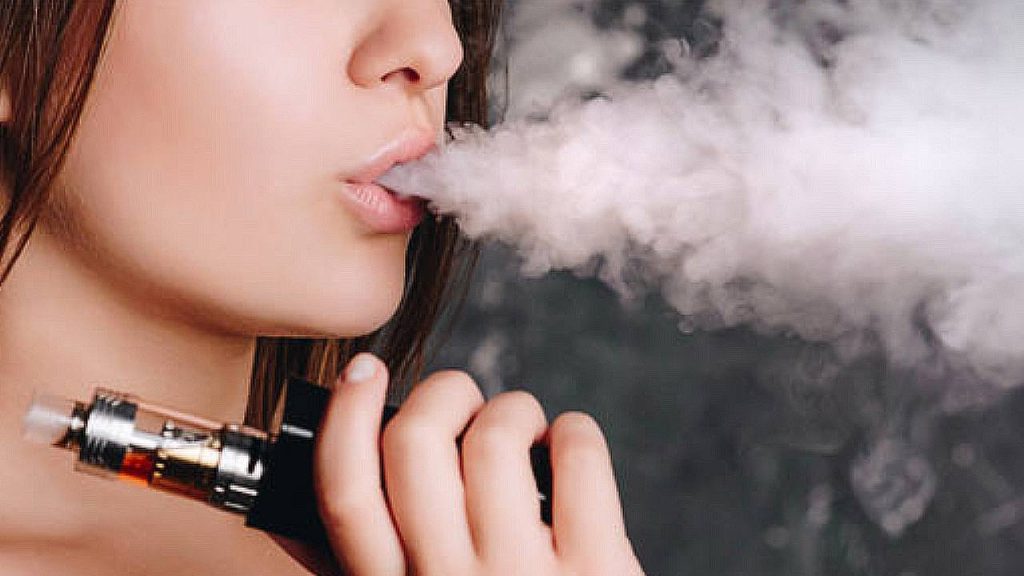It is already illegal to sell any vaping product to under-18s, so banning disposables will do nothing but take them out of the hands of adults, who represent the vast majority of users of disposable vapes.
With this ban on disposables, the Prime Minister is dining out on claims to be tackling youth vaping, but the fact is that if young people are easily purchasing vapes, it is because of a failure of law enforcement, a Trading Standards that is stretched to breaking point, and a Government that has shown little interest in serious dialogue with the legitimate vaping industry.
Banning disposables will not achieve what the Government claims it will. In fact, it is more likely to make things worse by handing the disposables category to criminals and fuelling an already thriving black market in e-cigarettes. Prohibition is not a substitute for governing.
And given our focus on evidence-based rulemaking in this country, what is the evidence that was used to justify this ban?
The Government certainly has not listened to the consumers. The New Nicotine Alliance has said that ministers have given little or no thought to how their proposal to remove the simplest, most cost-effective, entry-level vaping product is going to affect adult vapers and adults who currently smoke, especially older, poorer smokers, those with disabilities, and the homeless
This sentiment was echoed by cancer charities. Dr Stuart Griffiths, Head of Research at Yorkshire Cancer Research said: “Disposable vapes are particularly useful for some groups of people, such as those on no or little incomes who may find the initial expense of a starter kit too great. They may not be able to keep one charged if they do not have reliable and consistent accommodation. Within mental health and prison settings, disposable and tamperproof devices may also help to avoid substance or device misuse […] any ban for disposable vapes should have some exceptions”.
In his statement, Dr Griffiths also said that Yorkshire Cancer Research was calling on the Government “to ensure disposable vapes are still available for stop smoking services, and mental health and prison services”.
The Government has not listened to the academics. A study by researchers at University College London concluded that a ban on disposable e-cigarettes would currently affect 2.6 million people in the UK, including 1.2 million current smokers and would disproportionately impact disadvantaged groups that have higher rates of smoking and typically find it harder to quit.
The Government even ignored the advice of the anti-smoking lobby. Action on Smoking and Health said “the risk of unintended consequences is too great for us to support a ban [on disposable e-cigarettes]”.
The position of the Association of Directors of Public Health North East is that they do not support a ban on disposable e-cigarettes. The North East of England has some of the highest smoking rates in the country.
The Government also appears to have ignored Parliament’s Health and Social Care Committee. It did not advise a ban on disposable vapes, rather it recommended that “the Government should approach the issue with caution […] owing to the risk of unintended consequences such as increasing the supply of illegal, unregulated vapes.” They further advised that the Government be led by the evidence including that from Australia, where onerous restrictions on vapes has seen a 5-year stagnation in smoking cessation rates and a market that is 92% illicit.
Furthermore, there seems to have been little or no consideration to the impact on business. Today the vaping industry in the UK is a thriving £2.8bn sector, employing 17,700 people. A third of adult vapers in the UK use disposables.
This ban on disposables will likely be fast-tracked through Parliament with little or no scrutiny by MPs and Peers in what looks like a desperate, last-ditch attempt to win votes at the expense of the health of ex-smokers and current smokers.
Banning a product that is already banned for under-18s makes no sense, achieves nothing, adds more complexity and cost, and will simply cause utter chaos in what was, to date, one of the only business success stories in the UK in recent years.
If the Government won’t change course now, perhaps it will reconsider in the 12-18 months after a ban, when smoking rates begin to rise in the UK once again.
Denying vaping products to adults to protect kids, when their sale to under-18s is already banned makes no sense

Dr Marina Murphy
Dr Marina Murphy, Senior Director, Scientific and Medical Affairs, ANDS
Marina Murphy has more than 20 years’ experience across scientific research, communications, and engagement in science, tobacco harm reduction and nicotine. Marina is currently Senior Director, Scientific and Medical Affairs at ANDS and has previously held senior positions at JUUL labs and at British American Tobacco. Marina has a Ph.D. in chemistry from the National University of Ireland, Galway. She has been published across a range of scientific journals, including Drugs & Alcohol Today and Key Engineering Materials, as well as in the top-tier media outlets, including the BBC, New Scientist, sciencebusiness and The Irish Times. Marina takes great pride in having forged a unique career path that allows her to use a genuine passion for science to help make a real difference in people’s lives.

